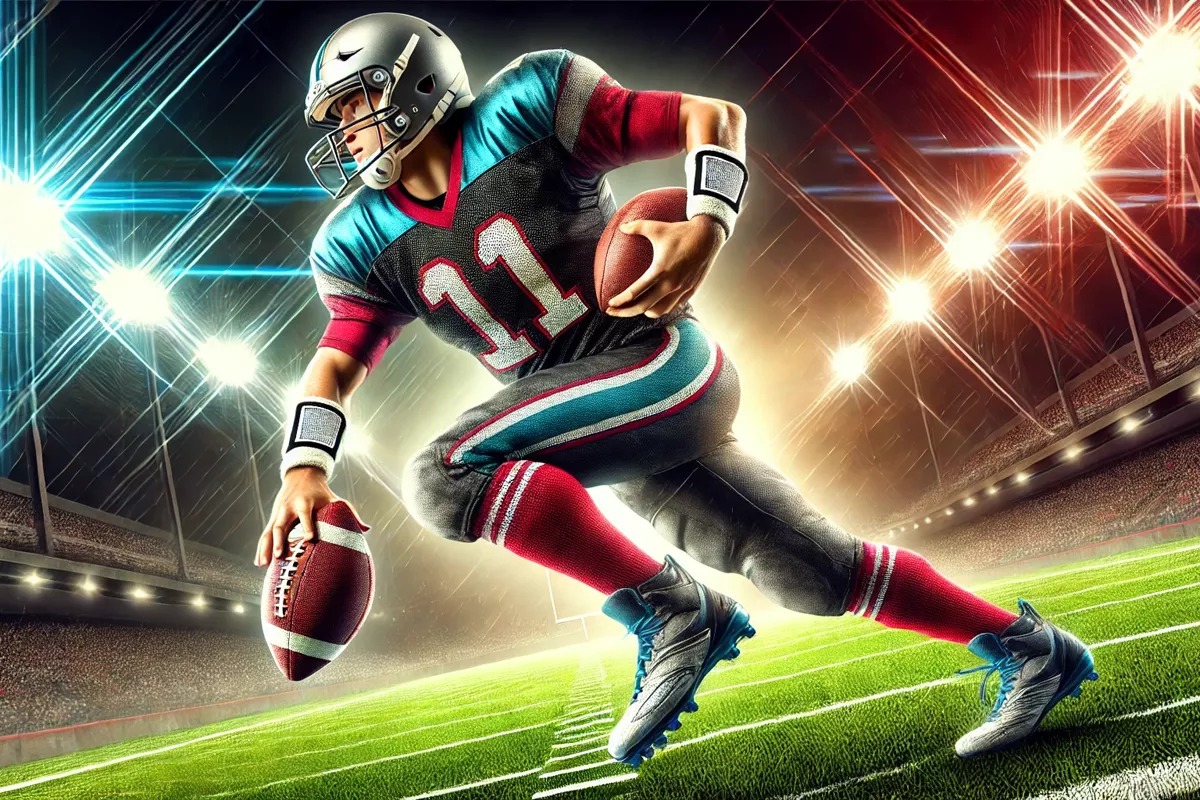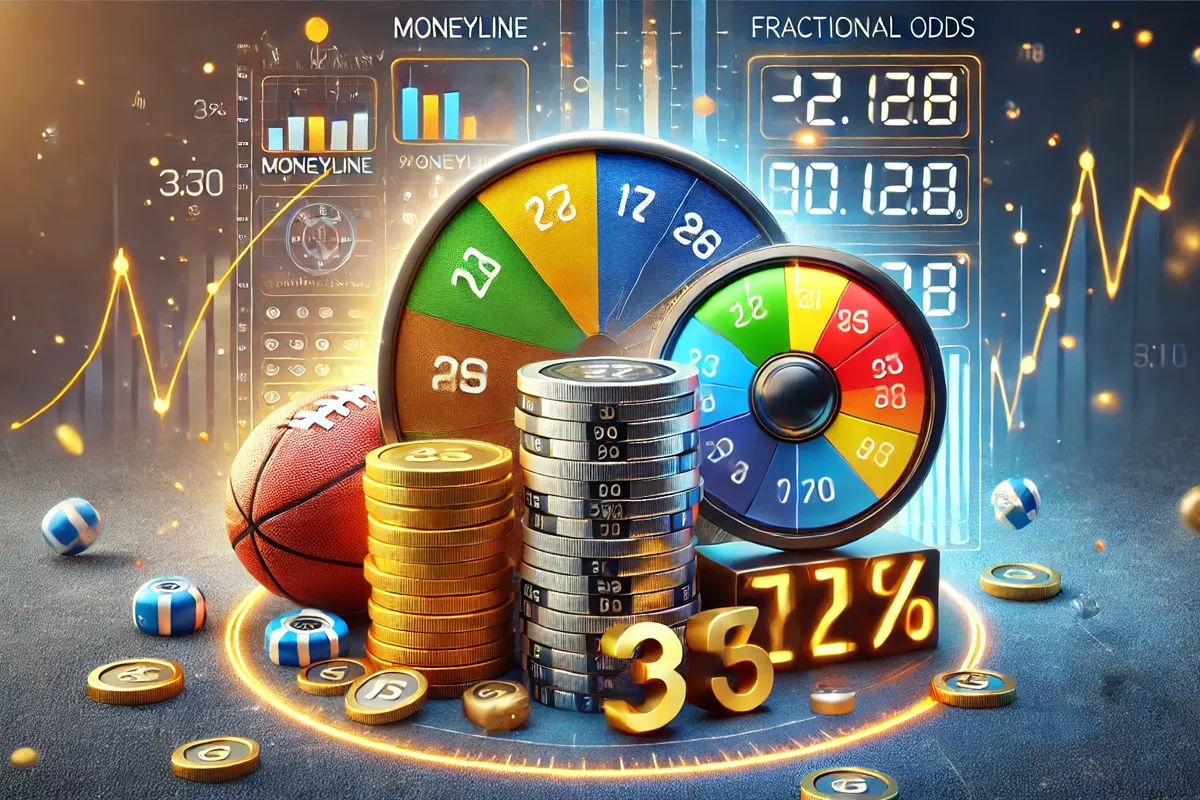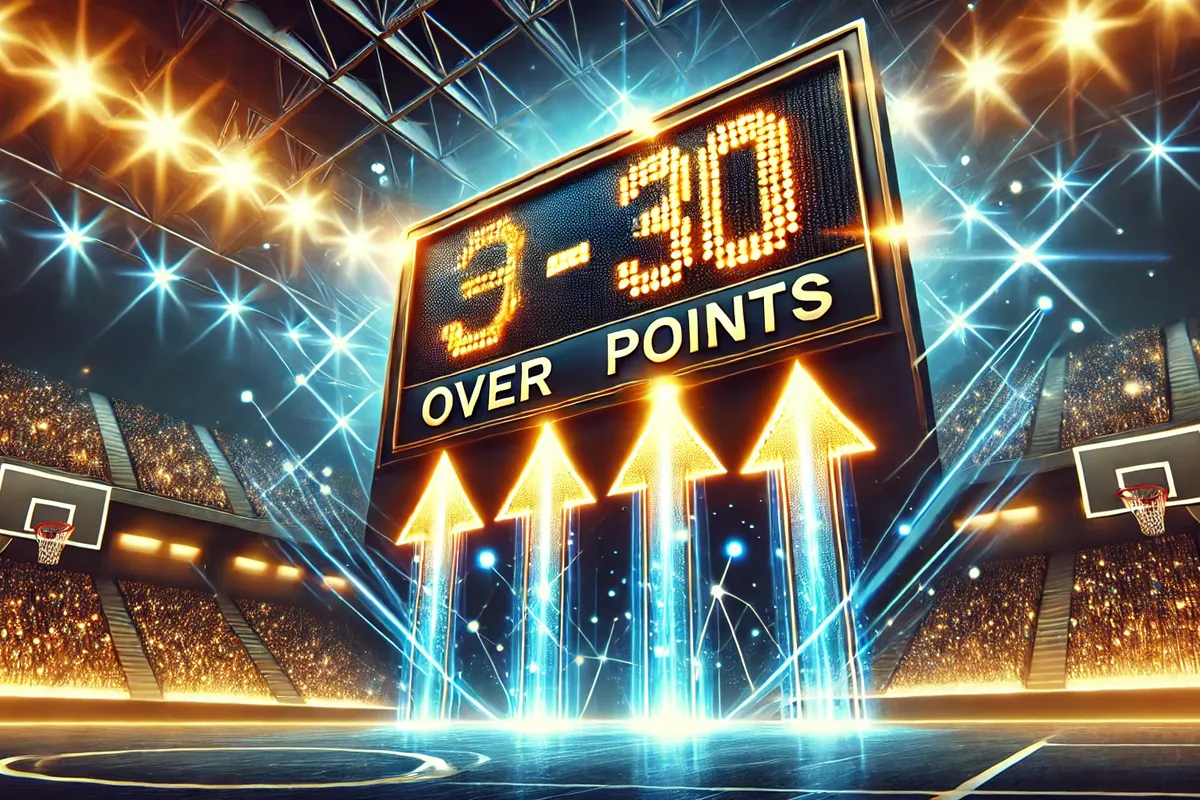If you’re getting into sports betting, you’ve probably heard people talk about having an “edge.” But what does that actually mean? And more importantly, why does it matter so much? In simple terms, having an edge in sports betting is the difference between placing random bets and making smart, strategic plays that give you a better chance of winning in the long run. Let’s dive into what edge means in betting, why it’s important, and how you can find it.
Table of Contents
ToggleWhat Does Edge Mean in Sports Betting?
In sports betting, an edge is basically an advantage. It’s when you’ve found a situation where you believe the odds are in your favor more than the sportsbook or other bettors realize. In other words, you’re spotting value—when the odds don’t fully reflect the true probability of an outcome. If you consistently bet with an edge, you’re not just gambling, you’re making informed decisions, which is what separates casual bettors from serious, long-term winners.
For example, if a sportsbook sets the odds implying that a team has a 50% chance of winning, but you’ve done your research and believe they actually have a 60% chance, that’s your edge. It means you’ve found a situation where the odds aren’t as sharp as they could be, giving you a better shot at making money.
Why Does Having an Edge Matter?
Why is an edge so important? Because without it, you’re essentially just guessing. Sportsbooks are designed to make money—they don’t just randomly set odds; they do tons of research and calculations to build in a house edge, which gives them an advantage over most bettors. If you’re not betting with some kind of edge, you’re playing right into their hands.
Think of it like this: sportsbooks have a small built-in advantage on every bet you place, often called “vig” or “juice.” It’s their way of ensuring they make a profit. If you don’t have an edge to counter that, it’s like going uphill—you’re going to lose more often than you win.
How Do You Calculate Edge in Sports Betting?
Let’s get a little technical for a second. Calculating your edge involves comparing your own prediction of an outcome to the sportsbook’s implied probability (which is baked into the odds). Here’s a simple way to figure out if you’ve got an edge:
- Find the implied probability of the odds: This is how likely the sportsbook thinks a particular outcome is, based on the odds they’re offering.
- For positive odds (e.g., +150), the formula is: 100 / (Odds + 100)
- For negative odds (e.g., -150), the formula is: Odds / (Odds + 100)
- Compare it to your own estimated probability: After doing your research (looking at stats, trends, injuries, etc.), come up with your own percentage chance of that outcome happening.
- If your number is higher, you’ve got an edge.
Example:
Say you’re betting on a football game, and the sportsbook offers +150 odds on Team A to win.
- Convert the odds into implied probability: To figure out what the sportsbook believes the probability of Team A winning is, use the formula:
- Implied Probability = 100 / (Odds + 100)
- So, for +150 odds:
- Implied Probability = 100 / (150 + 100) = 100 / 250 = 0.40 or 40%
- The sportsbook is saying Team A has a 40% chance of winning.
- Estimate your own probability: Based on your research, you think Team A actually has a 50% chance of winning. This is higher than what the sportsbook believes.
- Compare the two: Since your estimated probability (50%) is higher than the sportsbook’s implied probability (40%), you have a 10% edge. This means you’re getting better value than what the odds suggest, giving you a better chance of winning in the long run.
In this case, betting on Team A might be a smart move, because you’ve found value in the odds—that’s your edge.
How to Find an Edge in Betting
Now you’re probably wondering, “How do I actually find an edge?” Here are a few strategies to help you spot it:
- Do Your Research: This might seem obvious, but it’s key. Dive deep into the stats—team performance, player injuries, trends, weather, head-to-head matchups. The more you know, the better chance you have of finding value where others might not.
- Shop Around for the Best Odds: Different sportsbooks offer different odds on the same games. You’d be surprised how much they can vary. By comparing odds from multiple sportsbooks (called line shopping), you can find better value and increase your edge.
- Bet Against the Public (Fade the Public): Public opinion can move betting lines, especially if a lot of recreational bettors are betting on a popular team. When too much money comes in on one side, the line shifts, and that can create value on the other side. Betting against the crowd can sometimes give you an edge.
- Live Betting: Live betting, or in-game betting, is where you place bets while the game is happening. If you’re quick to react to game situations—like a key player getting injured or momentum shifts—you can spot opportunities the sportsbook hasn’t adjusted for yet.
- Specialize in a Niche Sport: If you’re just betting on the major sports like football or basketball, sportsbooks are more likely to set sharp odds because they have tons of data and experience. But if you become an expert in a smaller or niche sport, you might find edges where the sportsbooks are less precise.
Edge vs. House Edge: What’s the Difference?
There’s a big difference between your edge and the house edge. The house edge is the sportsbook’s built-in advantage over bettors, often represented by the juice or vig. For example, in a standard bet with a point spread, you might see both sides listed at -110. This means you’d have to bet $110 to win $100. That extra $10 is the juice, or the house’s way of ensuring they profit over time.
Your goal is to find value that outweighs the house edge. That’s why finding and betting with an edge is so important. Without it, you’re at the mercy of the vig, and over time, the house wins.
House Edge in Different Bet Types
| Bet Type | House Edge (%) |
| Point Spread | 4.5% – 5% |
| Moneyline | 4% – 5% |
| Parlays | 10% or higher |
Consistency is Key
Here’s the thing: even with an edge, you won’t win every bet. But over time, if you’re consistently betting when you have an edge, the odds will start working in your favor. This is a long-term game. You’re not just trying to win today—you’re trying to win over the course of the season, the year, and beyond. That’s how successful bettors think.
If you want to be a serious sports bettor, understanding and finding an edge is crucial. It’s what separates pros from casual bettors. Betting without an edge is like shooting in the dark—you’re relying on luck. But when you have an edge, you’re betting smart, and over time, that’s how you win.
Ready to sharpen your skills and start finding your edge? Bet Picks Pro can help you stay ahead with expert picks and insights sent right to your phone. Sign up today for a 14-day risk-free trial and get that betting edge you need to come out on top!
Written By
With 15 consecutive years of profitable seasons, Steven Wilson stands as a seasoned Sports Betting Expert. Specializing in NFL/NCAAF, NBA/NCAAB, NHL, MLB, and PGA golf, Steven has mastered the art of strategic betting. Leveraging his background in Finance & Investment, he has guided thousands to boost their income through sports betting. Whether you're looking to make smarter bets or seeking a reliable secondary income stream, Steven's expert insights and proven track record make him the undisputed authority in the world of sports betting.
Turn Your Passion For Sports Into Profits
Get monthly picks direct to your phone. Start your 14-day FREE Trial Today.
By Beginning your Free Trial, you agree to Bet Picks Pro Terms & Conditions and Privacy Policy.
You may also like
Bootleg in Football: Definition & Tactical Purpose
Let’s talk about one of football’s sneakiest and most versatile plays: the…
3 Different Types of Betting Odds
The first time I heard about betting odds was in Rounders. You’ve probably seen…
What Does Over 30 Points Mean in Sports Betting?
If you’re new to sports betting, phrases like “Over 30 points” might seem a…




